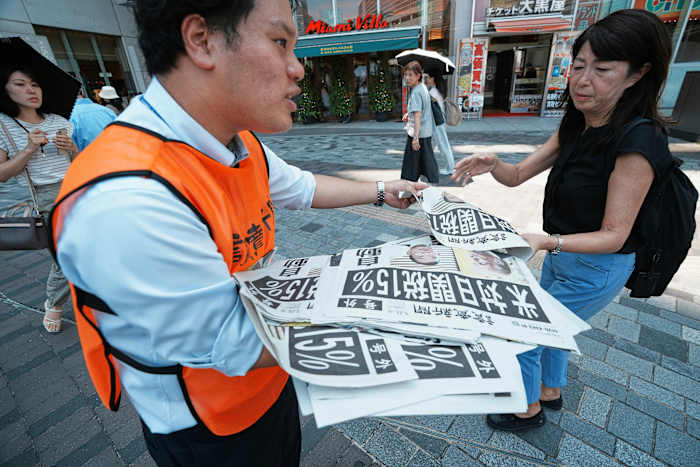Japanese Prime Minister Shigeru Ishiba has denied resignation reports despite mounting pressure following his ruling party’s historic election loss. Instead, he is prioritizing the implementation of a new tariff agreement with the United States.
Japan’s Ishiba denies reports he will resign, says he will focus on trade deal with the US

Key Takeaways:
- Ishiba denies reports he will resign as Prime Minister.
- His ruling party suffered a historic loss in a weekend election.
- There is growing pressure for him to step down.
- Ishiba intends to focus on implementing a new US tariff agreement.
- Resignation rumors persist amid political challenges.
Ishiba Denies Resignation Reports Amid Pressure
Japanese Prime Minister Shigeru Ishiba has firmly denied reports that he intends to resign from his position. Facing increasing scrutiny after his ruling party’s historic loss in a weekend election, Ishiba remains resolute in his decision to stay in office.
Historic Election Defeat for Ruling Party
The recent election resulted in an unprecedented setback for Ishiba’s ruling party. The historic loss has intensified discussions within political circles, leading to speculation about potential leadership changes at the highest level of government.
Mounting Calls for Ishiba to Step Down
In the wake of the electoral defeat, there has been growing pressure on Ishiba to step aside. Critics within his party and the broader political landscape argue that new leadership may be necessary to navigate the challenges ahead.
Commitment to US Tariff Agreement
Despite the calls for his resignation, Prime Minister Ishiba has emphasized his commitment to international trade priorities. He stated that he wants to ensure a new tariff agreement with the United States is appropriately implemented, highlighting the importance of this deal for Japan’s economic future.
Future Implications
As rumors of resignation persist, Ishiba’s steadfast focus on the US tariff agreement signals his intention to maintain stability during a tumultuous period. The coming weeks may prove critical in determining both his political fate and the direction of Japan’s engagement with key international partners.











